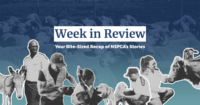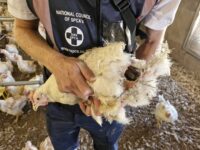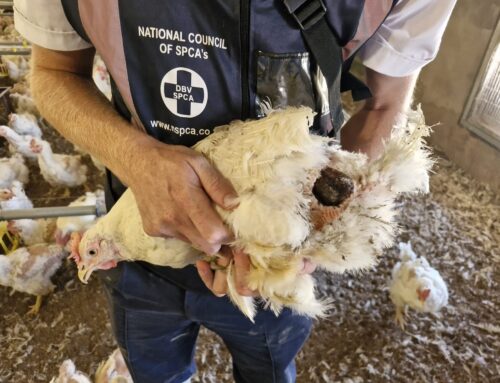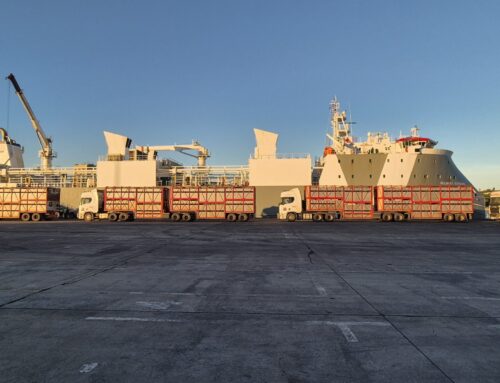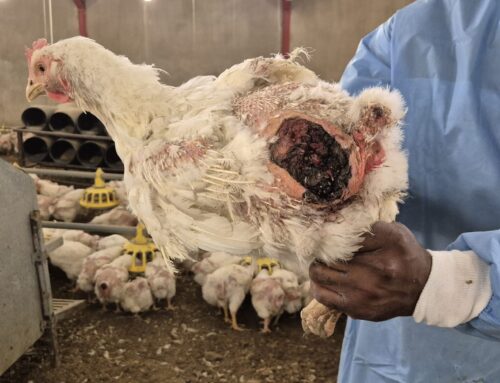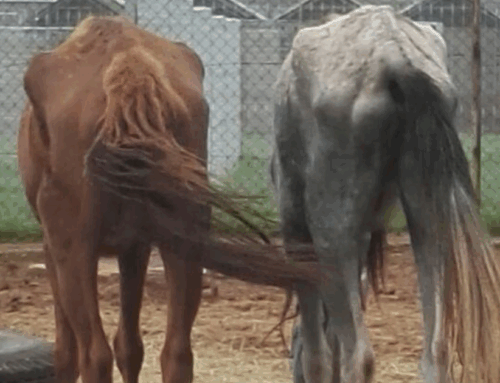The National Council of SPCAs (NSPCA) is horrified at the arrival of the Al Shuwaikh vessel which is set to dock at the East London Harbour to load a ‘consignment’ of 60 000 sheep destined for the Middle East. The Al Shuwaikh vessel anchored at the East London Harbour this morning.
Al Mawashi, a Kuwaiti importer, has registered a company in South Africa and is using a local exporter, the Page Farming Trust, to facilitate the acquisition of some 60 000 sheep and the loading of these sheep onto the vessel on and around 17 September 2019. Their intention is to export 600 000 animals, sheep, goats and cattle, per annum.
The route and climatic conditions of the voyage from South Africa to the Middle East will cross the Arabian Sea and enter the Strait of Hormuz. These areas are confirmed high risk areas for heat stress during the period of May to October.
The high temperatures in this area, which remain persistently high without relief (even overnight), render sheep incapable of regulating their body temperatures. Evidence has shown that during voyages between May to October, the combined heat and humidity can reach catastrophic levels causing heat stroke, resulting in sheep “cooking alive”.
Heat is not the only concern relating to this brutal practice. Animals are further compromised to the extent of, but not limited to:
- Lack of appetite leading to exhaustion;
- Salmonellosis (well attested to in both literature and official documents);
- High stocking density, which leads not only to physical discomfort and an inability to rest, but also to food and water restrictions;
- Pneumonia from multifactorial causes;
- Motion sickness;
- Change in lighting period and photoperiod resulting in stress and an impaired immune system;
- Physical trauma and injuries (trampling and injuries caused by rough seas).
More than 100 000 litres of urine and faeces accumulate on a typical live export ship every day sheep are on board. The ship won’t be ‘washed out’ until after they’ve disembarked. The weeks of untreated waste build-up mixed with high temperatures will create a lethal slurry of excrement making it dangerous for animals to lie down as they risk being buried alive. The ammonia from the excrement poisons the air, burns the eyes and throats of those on board, and often leads to respiratory infections.
“Many animals will not survive the journey, the cumulative deaths on the fleets of Al Mawashi for the period from 1980 to the first half of 2017 is more than 1.5 million deaths. Those that survive the voyage will then face the horrors of arriving in a country where there are no animal protection laws. They will be shoved into boots of cars, and handled inhumanely – and they will be slaughtered fully conscious, often by unskilled slaughterers, and in the presence of other animals” explained Senior Inspector Grace De Lange, manager of the NSPCAs Farm Animal Protection Unit.
The NSPCA believes that live export by sea for the purposes of slaughter is completely unacceptable and unnecessary. South Africa must take a stand against this abhorrent and unnecessary practice and rather export packaged meat, which not only ensures that animals do not suffer unnecessarily, but helps the country’s struggling economy.
Make your voice heard – sign the petition.
If you are as passionate about animals and their well-being as we are, consider supporting our causes by donating.
Latest News Posts
Will You Be the One Who Takes Action?
Most people will scroll past this. But will you be the one who stands up for animals?
Animal welfare isn’t always in the spotlight, but it changes lives – for every neglected, abused, or suffering animal we help. Our teams work tirelessly, often behind the scenes, ensuring animals across South Africa are protected.
This work is relentless. The challenges are immense. But with more hands, hearts, and resources, we can do even more.
The equation is simple: the more supporters we have, the greater our reach, the stronger our impact.
Be part of the change. Become an NSPCA Project Partner today. From just R50 per month, you can help ensure that no animal suffers in silence.

